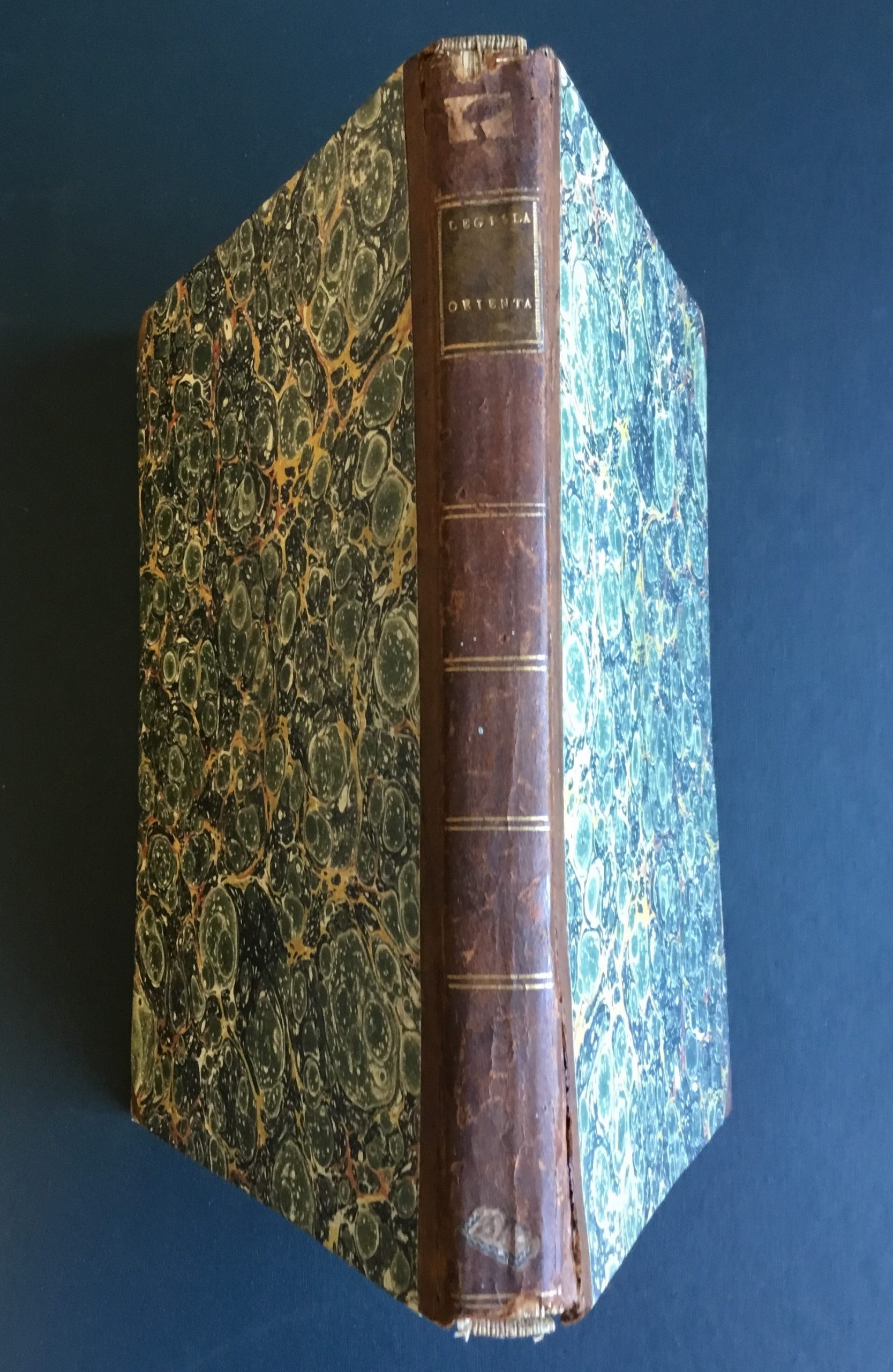Legislation Orientale: ouvrage dans lequel, en montrant quels sont en Turquie, en Perse et dans l’Indoustan, les principes fondamentaux du gouvernement, on prouve, I. que la maniere dont jusqu’ici on a représenté le despotisme…… II. Qu’en Turquie, en Perse & dans l’Indoustan, il y a un code de loix écrites……. III. Que dans ces trois etats, les particuliers ont des propriétés en biens meubles & immeubles, dont ils jouissent librement.
Anquetil-Duperron M. (Abraham-Hyacinthe) 1731-1805.
Synopsis
Concerning Muslim law, politics and government in Turkey, Persia and India and claiming that Montesquieu’s view of oriental despotism was misguided.
Anquetil-Duperron M. (Abraham-Hyacinthe) (1731-1805), French orientalist, brother of Louis Pierre Anquetil, the historian, was born in Paris on the 7th of December 1731. He was educated for the priesthood in Paris and Utrecht, but his taste for Hebrew, Arabic, Persian, and other languages of the East developed into a passion, and he discontinued his theological course to devote himself entirely to them. His diligent attendance at the Royal Library attracted the attention of the keeper of the manuscripts, the Abbé Sallier, whose influence procured for him a small salary as student of the oriental languages. He had lighted on some fragments of the Vendidad Sade, and formed the project of a voyage to India to discover the works of Zoroaster. With this end in view he enlisted as a private soldier, on the 2nd of November 1754, in the Indian expedition which was about to start from the port of L’Orient. His friends procured his discharge, and he was granted a free passage, a seat at the captain’s table, and a salary, the amount of which was to be fixed by the governor of the French settlement in India. After a passage of six months, Anquetil landed, on the 10th of August 1755, at Pondicherry. Here he remained a short time to master modern Persian, and then hastened to Chandernagore to acquire Sanskrit. Just then war was declared between France and England; Chandernagore was taken, and Anquetil returned to Pondicherry by land. He found one of his brothers at Pondicherry, and embarked with him for Surat; but, with a view of exploring the country, he landed at Mahé and proceeded on foot. At Surat he succeeded, by perseverance and address in his intercourse with the native priests, in acquiring a sufficient knowledge of the Zend and Pahlavi languages to translate the liturgy called the Vendidad Sade and some other works. Thence he proposed going to Benares, to study the language, antiquities, and sacred laws of the Hindus; but the capture of Pondicherry obliged him to quit India. Returning to Europe in an English vessel, he spent some time in London and Oxford, and then set out for France. He arrived in Paris on the 14th of March 1762 in possession of one hundred and eighty oriental manuscripts, besides other curiosities. The Abbé Barthélemy procured for him a pension, with the appointment of interpreter of oriental languages at the Royal Library. In 1763 he was elected an associate of the Academy of Inscriptions, and began to arrange for the publication of the materials he had collected during his eastern travels. In 1778 he published at Amsterdam his Législation orientale, in which he endeavoured to prove that the nature of oriental despotism had been greatly misrepresented.
Biblio. References: C. & N. Hage Chahine, Guide du livre orientaliste Levant, 144.








